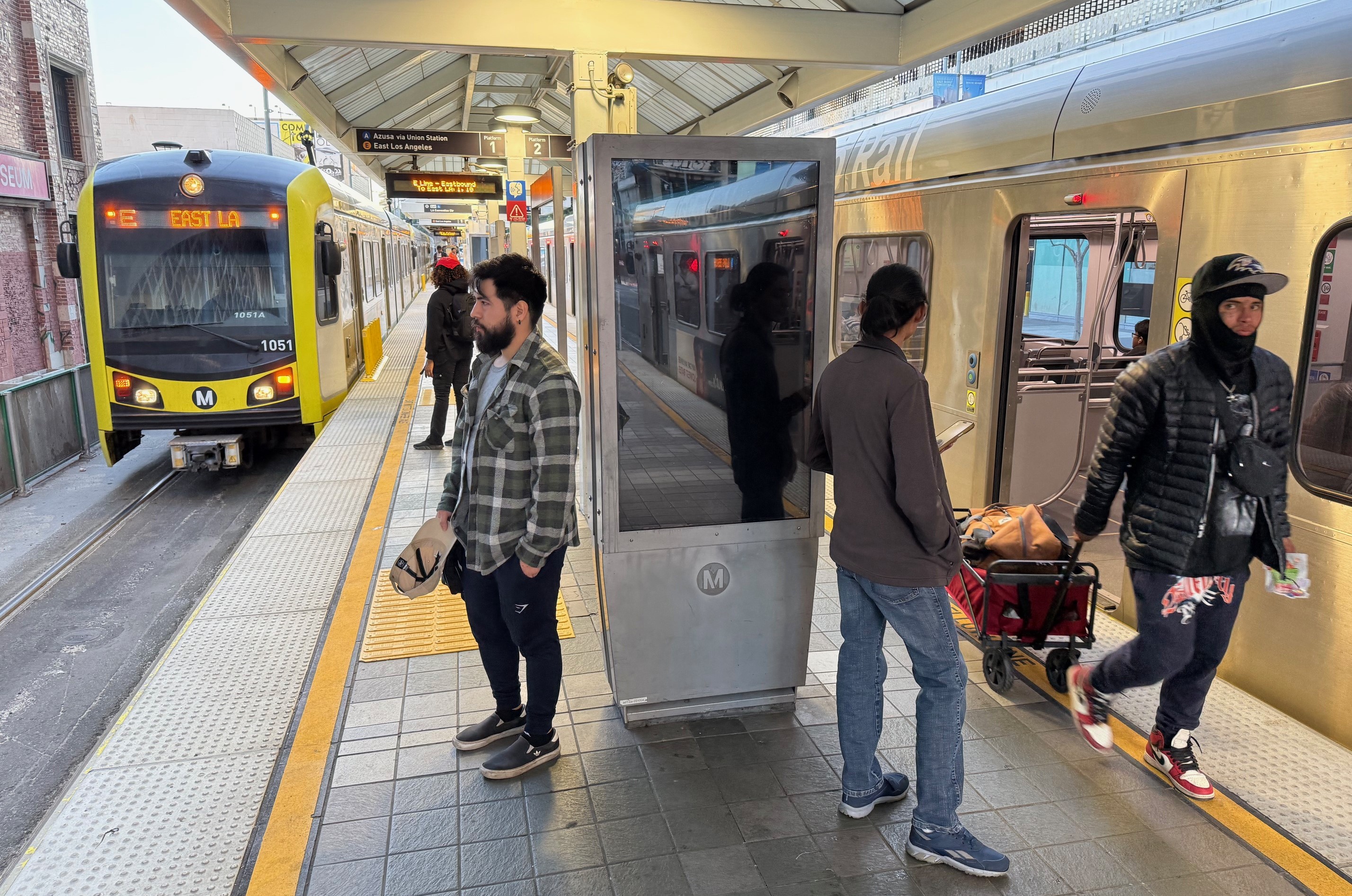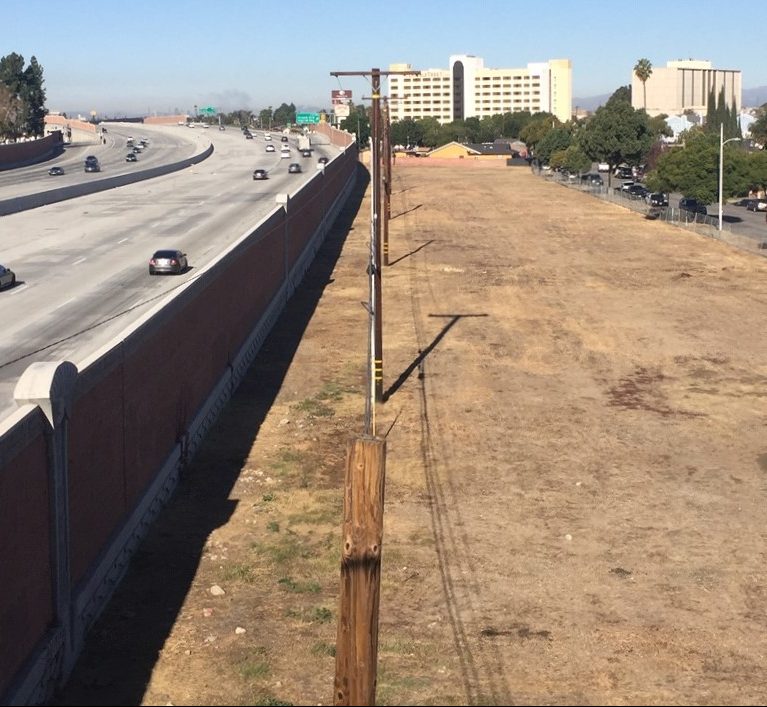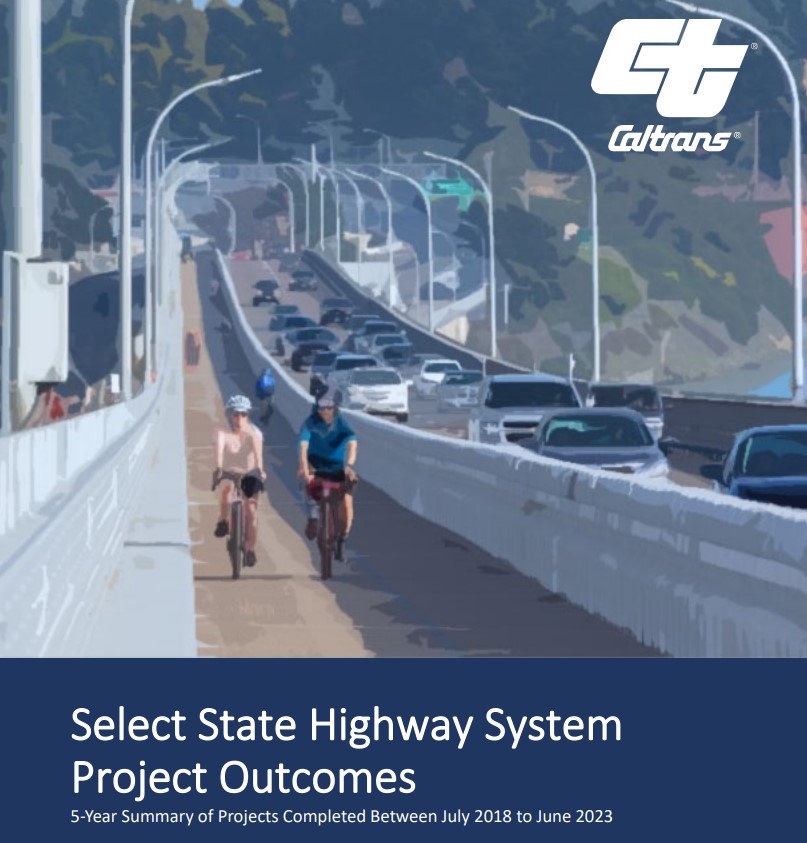
(Editor's note: One of the drawbacks of the timing of things is I have been unable to add anything to the coverage of the Mobility 21 conference that occurred earlier this week. Leaders from the freight industry, ports, car-lobby and government leaders held a summit on Monday to get together and talk about what they think needs to be done to fix our transportation system. Fortunately, there was a lot of coverage in the media, Steve Hymon served as the conference's official blogger/twitterer and So.CA.TA.'s Dana Gabbard wrote a lengthy review, which you can find below.)
Sept. 21st I attended the 8th annual Mobility 21 Transportation Summit. I've been to every summit since the event was conceived by then Metro CEO Roger Snoble and the late Rusty Hammer who at the time headed the L.A. Area Chamber of Commerce.
In my reading during the 90s I would often run across mentions of similar summits held in other parts of the country, and often wondered why we didn't have a similar event here. Of course it took bigshots like Snoble and Hammer, partnering with the Auto Club, SCAG etc., to get the ball rolling.
And after initially being a L.A. County centered event in 2007 Mobility expanded to encompass the adjacent counties of Ventura, Orange, San Bernardino and Riverside Counties.
Yes, the summit is a showy event to facilitate press coverage pushing the message of regional solidarity and political will to advocate for transportation funding at the state and federal levels. All sorts of electeds making speeches and such like. Yet even just for the sake of symbolism to force our wonderfully fractious political elite to smile for the cameras etc. matters. Also Mobility throughout the year acts to coordinate advocacy and organizes delegation visits which send the message to D.C. and 95814 that our region is no longer the disorganized in-fighting mob that we often had a reputation of being in the past.
So there I was, using a precious vacation day to attend this year's summit held in downtown Los Angeles at the Westin Bonaventure (for the transit curious -- I got there via Metro line 20 and a short hop on DASH route A). After being checked in I put on my name badge and snagged the usual continental breakfast fare these events all seem to start with -- fruit, fruit juices, croissants/pastries and coffee (the latter was welcome to help me stay awake) and found a seat at an empty table in the main hall. I know I should use this time to schmooze but I have never been that good at buttonholing folks, standing around and chatting, etc. I own up it is a defect in my character for being an effective advocate, but it just seems to be who I am. Certainly after all the years of being involved with these issues I have a lot of people who recognize me and say hi while walking by and that at times evolves into a conversation--sometimes I see someone I recognize
and will bestir myself to say hello and talk with them if something of importance occurs to me to discuss. Had a chance to thank Josh Shaw, Executive Director of the California Transit A Association, for his efforts to fight funding cuts by by the state. The room started to fill and several people sat at my table, with the usual vague nods of hello. I also used this time to look through the event bag I had been given when I registered, which had lots of literature and some small swag including a nifty water bottle.
Soon the event started and fairly followed the Program that I had been perusing a few minutes before.
http://www.
We had a media personality as the emcee who only in a general way was familiar with the topic, but I guess that matters less than having down pat the upbeat cheery persona part of the role and knowing which way to face to be on screen.
Metro's new CEO Art Leahy gave some introductory remarks then we launched into the first panel on funding issues. The moderator was an academic but the panelists included one heavyhitter -- Dale Bonner Secretary of the Business, Transportation & Housing Agency for the state. There was a lot of talk about public-private partnerships and at least some admissions about the shortcomings and limitations of same. John R. Schmidt from Chicago touted those recent deals that resulted in billions by leasing mid-west tollways. He mentioned plans to lease Chicago Midway Airport and speculated what a similar deal for LAX might yield. But he did admit he isn't familiar with the political landscape here -- which is obvious as he seemed unaware such a LAX deal or even the mere concept would produce a political firestorm (I bet even airport critics would hate the idea). So lots of pie in the sky speculation but nothing overly grounded in the here and now.
Then we had a welcome speech by L.A. Mayor Antonio R. Villaraigosa. Which unfortunately was his standard issue stump speech on transportation, basically touting Measure R passage and that more hard work lies ahead for L.A. County. For a large room filled with folks from all over the region this generated a polite but unenthused response. The only issue he raised the resonated was support for the statewide High Speed Rail system, and then he only spent a minute of so on it amid his lengthy remarks. Maybe in the future AV will take more care to shape the message to fit the
interests of the room.
After a brief break which allowed me a first look-see at the exhibitors in the event's expo (mostly agencies and transportation firms of various sorts), it was time to pick which breakout session to attend. These included the topics of multimodalism, goods movement, safety and land use planning -- all of some interest. But I picked the panel of high speed rail since it is something I have
been following since the mid-90s and with the passage of the bonds last year and the new federal climate of support seems to now be more than just an interesting idea.
The moderator was Will Kempton, new CEO of OCTA and until recently head of Caltrans. Carrie Pourvahidy of the High Speed Rail Authority gave an overview of where the project stands. David Valenstein of the Federal Railroad Administration made general remarks about the new high speed rail funding program the feds are rolling out. Man, was he dry and rather bureaucratic in his
demeanor! In contrast Peter Luchetti of the San Francisco-based private equity firm Table Rock Capital was quite animated and outlined what conditions needed to be met for a bullet train funding plan to draw private financing as a component of the funding pie. Art Leahy as the final speaker noted many challenges still exist including overcoming resident worries in areas adjacent to the project. Then Mr. Kempton read some questions submitted by the audience, including mine asking how can buy-in among stakeholders in our area be built "Now that SCAGLEV is dead". The response was the usual vague prescription of networking etc. But at least I had the guilty pleasure of tweaking the demise of the idiot maglev project that had for too long infatuated many local politicos.
I did some more scouting of the expo area after the panel broke up than went in for lunch--which turned out to be a large salad with chopped turkey etc. along with rolls/butter, water and coffee plus a mini chocolate dessert.
While the morning session had mostly been realpolitik, the mood altered at this point as the keynote speaker brought starry eyed idealism to the fore. This was Christopher Steiner, author of the new book $20 per Gallon. Frankly he gave a very self indulgent and rather smug talk. Steiner came off an enormously taken with himself for his insight of oil depletion being inevitable as if that alone makes him a great genius and by hearing him we too are now ahead of our sadly uninformed fellow humans who don't know about... Well, Steiner really never made it all that clear what the coming of peak oil etc. really meant beyond that high gas prices would have some kind of dire consequences. But what these social and economic impacts might be was something he provided not even a hint about. Maybe his book has the answers, but based on his talk I was not all that interested in buying it. It was really one long narcissistic monologue, and not even all that interesting of one. Again the audience was polite but unenthused.
By now we were leaking attendees--agency staffers and electeds trying to beat traffic or going back to the office to do some work after spending so much time away.
Three awards we given out -- to the Mayor of the city of Orange Carolyn V. Cavecche, to the non-profit Inland Action and to summit founder/recently retired Metro CEO Roger Snoble. All this involved testimonials, award ceremonies and obligatory photo taking with the recipients (except Snoble who was on vacation in Hawaii and gave a pre-taped thanks).
After a final break (from which only about a third of the attendees returned) the recommendations of the breakout sessions were read. This to me has always seemed like a waste of time, as no one pays any attention to these and they end up being lengthy laundry lists of needs and concerns and ideas that gather dust on a shelf languishing in obscurity. I guess it is an obligatory part of such gatherings.
The final panel would probably have been of interest to many readers of this blog, as it dealt with sustainability and innovation in transportation (continuing the more visionary mood that dominated the afternoon portion of the event). Ride sharing and alternative fuels and vehicles consumed the over 90 minute program. It was hard to get a sense what the audience's reaction to all this was (especially as no time was left for q&a as the panelists all had lengthy presentations). At least it may have been a useful exercise to expose this group of folks to ideas and possibilities they probably don't generally give much thought to. Or am I selling them short? Maybe.
Darren Kettle, Executive Director of the Ventura County Transportation Commission, then essentially said thanks for coming and invited us upstairs to the post event reception. It drew about 50 of the most die-hard agency staff, etc. eating nibble food items and sipping wine while chatting about what we had seen that day, catching up with colleagues, etc. I spent my time chatting with a local consultant I have run into at past events of this kind -- we compared notes and talked about various aspects of transportation in the region.
And then I went downstairs and caught a bus to make my way home.
I concede it was a dog and pony show. But this is how the process works. All part of the dance. You shake your head at times, but in the end muscle forward and keep at it. Not a magic bullet but a long overdue antidote to the parochialism of the Southern California political culture. It probably should be evaluated over a time span of more than a few years to measure what it has achieved and what its value is. Change and improvement take time and effort.




